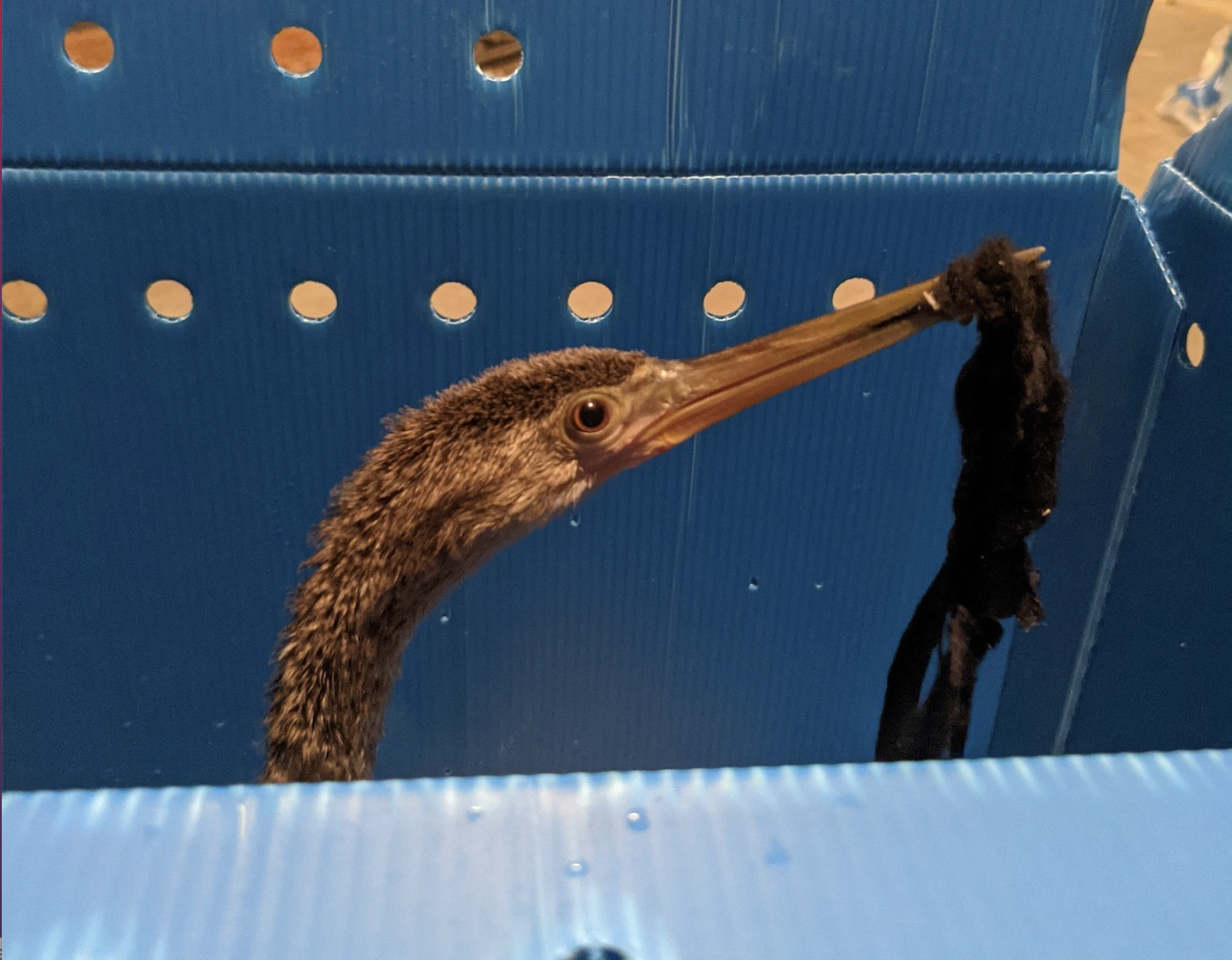
Photo courtesy of Pelican Harbor Seabird Station

Audio By Carbonatix
To minimize transmission of COVID-19, the Centers for Disease Control and Prevention (CDC) recommends wearing facemasks, a gesture of common courtesy to others who might be unvaccinated or have weakened immune systems.
However, as one unlucky anhinga found out last week in Doral, this recommendation applies strictly to humans: For three days, the waterbird was unable to open its beak to eat after a cloth facemask became entangled around it.
Staff at Pelican Harbor Seabird Station, a nonprofit wildlife rehab center in Miami dedicated to rescuing pelicans, seabirds, and other native wildlife, started receiving calls about the mask-ensnarled anhinga early last week at Osprey Lake in Doral. Concerned citizens kept sending in videos and photos of the struggling bird. But each time someone attempted a capture, the bird flew away.
After getting in touch with Doral’s interim city manager, Hernan Organvidez, Pelican Harbor Seabird Station staff were able to access the lake on August 26. By that time, it had gone three days without eating or drinking.
“It was very weak, very dehydrated, but also extremely stressed,” Hannah McDougall, the nonprofit’s director of communications, tells New Times. “It was within days of death.”
Wildlife veterinarian Dr. Linda Gregard led the team effort to free the anhinga – or Patient 1569, according to the nonprofit’s records – gently stabilizing the bird, then snipping away the mask threads from its beak.
“Anhingas have serrated beaks, like the serrated edge of a knife,” McDougall explains. “So this mask was really caught up and tangled in there.”

The procedure was a team effort to gently stabilize the anhinga and snip away the mask’s threads.
Photo courtesy of Pelican Harbor Seabird Station
Though entanglements are one of the most common injuries the nonprofit treats, McDougall says it’s typically fishing lines, nets, plastic bags, and rope. This is the seabird station’s first reported case of personal protective equipment (PPE) becoming entangled on a bird treated there.
McDougall says the facemask was black, made of cloth, and had begun to deteriorate after being submerged in water. She hypothesizes that the anhinga either swam through it or had mistaken it for food.
“It’s such a shame that we continue to see these types of injuries to wildlife,” she says. “Hopefully, this will encourage others to become more aware of how they dispose of their trash.”
McDougall reports that Patient 1569 is doing well. It was given an exam, X-rays, and bloodwork. It’s being treated for intestinal parasites. (McDougall couldn’t confirm if it was prescribed ivermectin, the controversial antiparasitic drug used mostly for treating wildlife that humans are turning to as an unproven COVID-19 treatment.)
The staff plans to release the anhinga back at Osprey Lake in Doral next week.